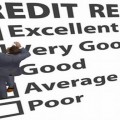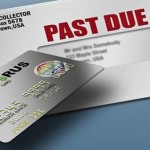Credit Repair Myths Exposed

If you’ve done any searching on the Internet for information pertaining to “Credit Repair,” you’ve no doubt found that there’s a great deal available. Unfortunately, there’s also a lot of misinformation as well.
Let’s take a look at some of the most common misstatements you’ll come across and examine them in detail.
MYTH #1
“Credit repair doesn’t work!”
While it’s true that credit repair is more “art” than “science” that’s not to say it doesn’t work. If you undertake to repair your bad credit score, there’s never any guarantee you can restore it to “perfect” status. But sometimes you can, and in almost every case you can at least affect some improvement in your credit score, and often major improvement at that!
First of all, credit reports for the most part are filled with errors. While there seems to be no general agreement, it’s estimated that anywhere from 1/3 (Attorney General of NY) to as many as 90% (Charles Givens Organization) of credit reports contain errors.
Removal of erroneous negative information alone will go a great way toward improving your credit score. But there’s more to the story, which brings us to myth #2.
MYTH #2
“Negative information that can be verified cannot be removed”
This is one of those statements that are “almost” true, but taken literally is misleading. As is often the case, the inclusion (or exclusion) of one seemingly small word makes the difference in a truthful statement, and one that’s not (or not necessarily) accurate.
Let’s take an analogy. Suppose it’s the middle of summer, and your grass has grown unusually high. Let’s also suppose that you own a lawn mower, it’s in good working condition, and has plenty of gasoline in the tank.
Now let’s say that you’re sitting on your couch and say to yourself “My grass will get cut today because I ‘CAN’ go outdoors anytime and cut it.”
So will your grass get cut? Not necessarily! Just because you “can” go outdoors and cut your grass doesn’t mean it’s going to get done. You can repeat this statement to yourself all day long, but your grass isn’t going to get cut until you actually go outside and DO it!
Likewise, because a negative item on your credit report “can” be verified doesn’t mean it will be. According to the Fair Credit Reporting Act, a credit bureau must investigate and verify “within a reasonable period of time” any item in your credit report that you dispute. If the “information is found to be inaccurate or can no longer be verified, the consumer reporting agency shall promptly delete such information.”
Now in this context “can be verified” clearly means verified by the credit bureau’s investigation of the item, and the “reasonable period of time” has been established (by subsequent rulings) to be 30 days. So if the credit bureau doesn’t complete its investigation of the disputed information within 30 days, or if for some reason the creditor fails to respond and verify the information, by law the disputed data must be deleted from your credit file.
MYTH #3
“Credit repair agencies are all scams”
It’s true that there ARE a good many unscrupulous credit repair agencies. But there are also some corrupt police officers, lawyers, and politicians. Yet we don’t label all members of these professions as “corrupt.”
If you’re looking for help to repair your bad credit you do need to be careful and do your “homework” when selecting an agency. There are many honest credit repair companies that are not “scams.” But beware of any who make promises as to results!
As stated above, it’s not always possible to restore your bad credit history to perfect status, and no one should be making any promises to that effect. Beware of any company that does! And while an agency will in all likelihood be able to improve your credit score, if any agency makes this promise, be sure it’s accompanied by a money back guarantee. Otherwise, look elsewhere. And don’t forget to ask for references and follow up on them.
MYTH #4
“You have to hire a credit repair agency or lawyer to fix your credit”
Going back to the analogy above, you can always hire someone else to cut your grass (or to do just about anything else) for your. And if fixing your own credit seems an intimidating task, you might prefer to hire a credit repair company to do it.
But it’s not really necessary that you do. First of all, credit repair agencies aren’t cheap. You can expect to pay anywhere from $2,500 to $5,000 or more. Plus, you’ll be paying a high fee for something you can just as well do for yourself, which brings us to myth #5.
MYTH #5
“It’s too difficult or complicated to fix your own credit”
A credit repair company isn’t going to do anything for you that you can’t do for yourself! Credit repair isn’t rocket science. It involves writing letters to credit bureaus and to creditors. If you’re able to write a letter, put a stamp on it and mail it, you’re able to repair your own credit.
“Given the proper knowledge, you can fix your own credit”
This statement IS true! You‘re entirely able to repair your own credit, given the proper knowledge. And given the proper knowledge, you can fix your own car, repair your own plumbing, or for that matter perform brain surgery.
While fixing your own credit is relatively simple and straightforward, you do have to know how to go about it. Essentially it involves getting a copy of your credit report and writing letters to the 3 major credit bureaus disputing negative information in your file.
But there’s a right way and a wrong way to do it. In fact even some of the high priced credit repair agencies get it wrong, which brings us to myth #6.
MYTH #6
“You improve your credit score by getting all the negative items on your credit report removed”
It’s possible to get all the negative items on your credit report removed and actually see you credit score go DOWN as a result! The reason? Your credit score depends on a number of factors, one of which is the length of your credit history. In some cases, you’re better off to NOT remove some negative items on your report, especially if they involve a few late payments in the distant past, but show timely payments during recent years.
While the “nuts and bolts” of credit repair is beyond the scope of this report, there are a number of sources of good information online. If you have bad credit, there are 3 major points you should keep in mind:
1. If you have a bad credit history, it can (and probably will) cost you many tens of thousands of dollars in higher loan interest over the years, as you’ll be charged much higher rates than you would be with good credit. If your credit is really bad, you may not be able to get a loan at all!
2. The situation isn’t hopeless! In almost every case you CAN improve your credit score. You can easily do it yourself or find a reputable agency to do it for you. But in any case, GET IT DONE!
3. If you choose to repair your own credit (recommended) there are good books and eBooks available that can walk through the process. Get hold of one and get started NOW!


















